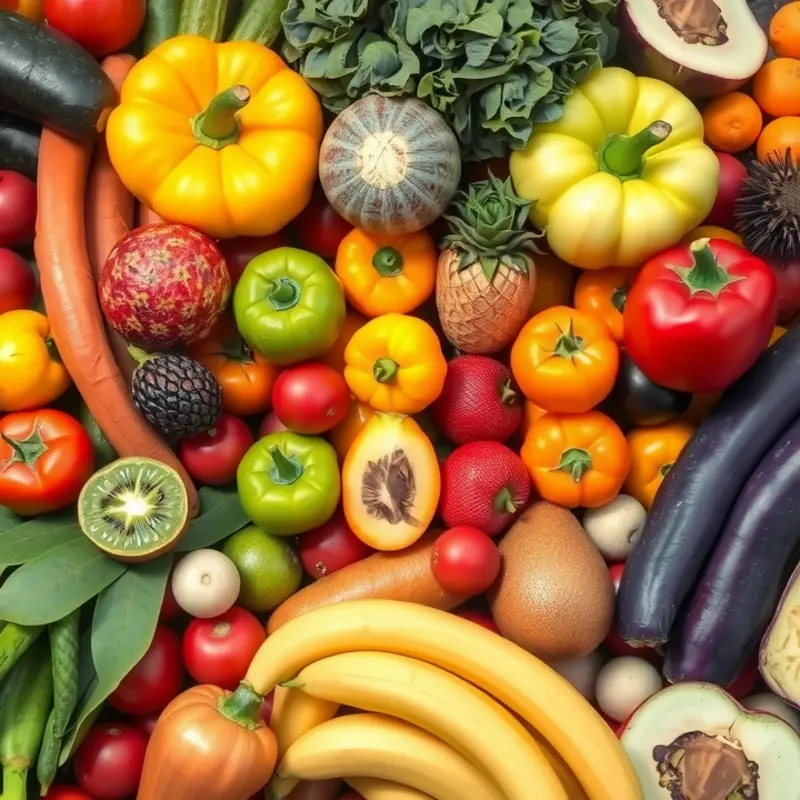The timing of fruit consumption is a topic of much debate. Many people wonder whether eating fruit after meals is detrimental to digestion. Some believe it can lead to digestive discomfort, while others argue that fruits can enhance nutrient absorption. Understanding the effects of fruit on digestion is essential for making informed dietary choices. This article aims to clarify the myths and realities surrounding this common question and help you understand how to incorporate fruit into your diet wisely.
Understanding Digestion: How It Works

Digestion is a fascinating and intricate journey that food undertakes within the human body. It begins in the mouth, where the mechanical action of chewing breaks down food into smaller pieces. Saliva, rich in enzymes such as amylase, initiates the breakdown of carbohydrates. This process continues as food travels through the esophagus and reaches the stomach.
In the stomach, hydrochloric acid and digestive enzymes further dismantle food. Proteins, bulky molecules, start to unravel under the influence of pepsin. While the stomach focuses on proteins, carbohydrates continue their transformation thanks to residual amylase. Fats, however, await their real transformation later in the process.
The partially digested food, now called chyme, enters the small intestine. Here, the pancreas secretes enzymes that complete the digestion of proteins, carbohydrates, and fats. The liver produces bile, stored in the gallbladder, to emulsify fats for easier digestion. Nutrient absorption chiefly occurs in the small intestine, where villi, tiny hair-like structures, facilitate the uptake of vital nutrients into the bloodstream.
Fiber, an essential part of fruits, plays a key role even if it doesn’t undergo digestion. In the large intestine, fiber acts as a food source for gut bacteria. This process, known as fermentation, produces short-chain fatty acids beneficial for colon health. It also contributes to bulk formation, promoting regular bowel movements.
Understanding this process helps unravel how fruits fit into the digestion sequence. Fruits, rich in fiber and water, can assist in digestion due to these properties. Their high fiber content helps in regulating the speed at which food moves through the digestive system. This is crucial for maintaining digestive efficiency, especially after a large meal.
Post-meal fruit consumption raises an interesting point of debate, primarily concerning timing. The main argument is whether fruits compete or interfere with the digestion of more complex meals. Some believe that consuming fruits separately or before a meal can prevent gas and bloating due to their quicker transit time through the digestive tract.
Yet, science suggests the body is well-equipped to handle the complex cocktails of nutrients encountered daily. The timing of fruit consumption may be more about personal comfort and digestive health rather than a universal rule. Those prone to gastrointestinal discomfort might benefit from evaluating not just what they eat but also how they eat it.
For more on how understanding unconscious eating patterns can improve digestive health, you might find this article on mindful eating insightful. As we explore the intricacies of digestion, the importance of listening to your own body’s signals becomes clear, guiding choices for optimal digestive wellness.
Final words
Ultimately, eating fruit after meals is not inherently bad for digestion. In fact, many fruits can contribute positively by enhancing nutrient absorption and providing dietary fiber. Individual reactions to fruit consumption can vary based on personal digestive health and the types of meals consumed. To maximize benefits, consider pairing fiber-rich fruits with meals or enjoying them as snacks between meals. Listen to your body and identify what works best for your self-care and dietary preferences. By debunking common myths, you can embrace fruits as a valuable component of holistic nutrition.








